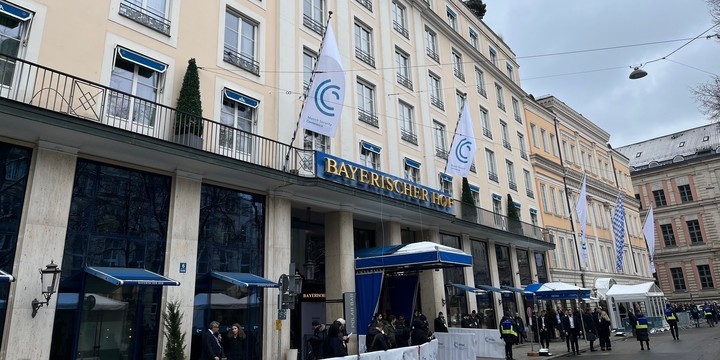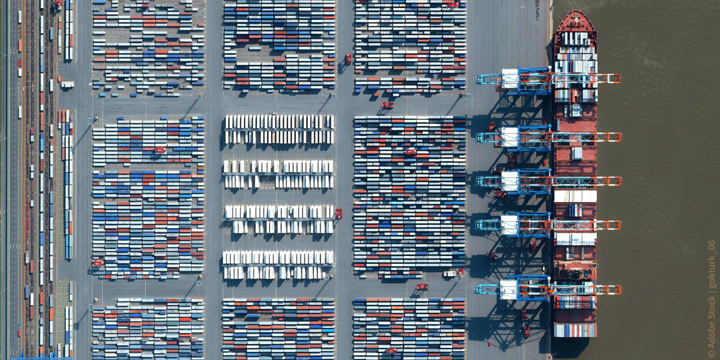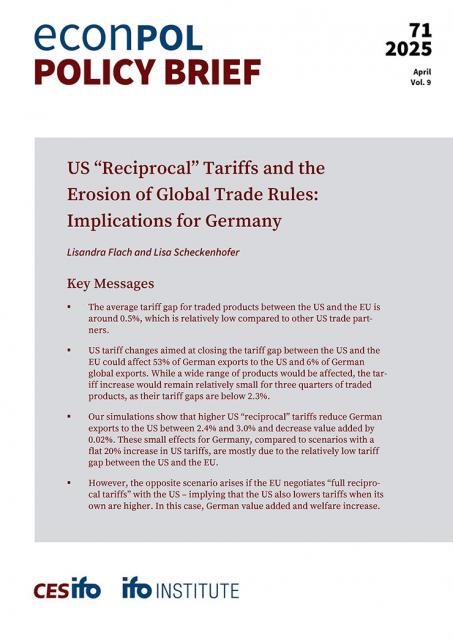News Archive

The Impact of Reciprocal US Tariffs on German Exports
|
Policy Brief
| News
If implemented on April 2, the “Liberation Day” announced by US President Donald Trump would have profound implications for the global trading system. A new Policy Brief shows that new reciprocal US tariffs would reduce German exports to the United States by 2.4% to 3%. These relatively small effects for Germany compared to a scenario with an across-the-board 20% increase in US tariffs on all trading partners are mainly due to the relatively small tariff gap between the US and the EU.

The Impact of Trump Tariffs on Mexico and Canada
|
Policy Brief
| News
US President Donald Trump’s 25% tariffs on imports from Canada and Mexico would trigger a decline of 28% in Canadian exports, 35% in Mexican and 22% in US exports, if retaliatory tariffs are imposed. Mexico’s and Canada’s manufacturing sectors would suffer the most, with value-added losses of 13% and 14%, respectively. In the U.S., the agricultural sector would take the biggest hit, facing a 2.4% drop in value added.

Roundtable Discussion at the Munich Security Conference 2025
|
Event
| News
Geopolitical tensions and trade conflicts constitute an ever-growing threat to Europe’s ability to defend itself. Procuring or developing critical technologies independently or with reliable partners is crucial. EconPol Europe and the ifo institute hosted a roundtable at the Munich Security Conference to discuss ways to achieve greater technological sovereignty.

EconPol Newsletter: Dependencies in a Globalized World
|
Newsletter
| News
In our first newsletter of 2025 we explore the impact of global dependencies - from critical supply chains and European climate policies to Mexico’s labor market. Additionally, we share impressions from our roundtable at the Munich Conference and details on our upcoming Annual EconPol Conference in Brussels, which will center on climate adaptation.

Mutual Dependencies in the Global Semiconductor Value Chain
|
Policy Report
| News
Semiconductors have become the epicenter of international trade disputes and geopolitical rivalries. Using trade data, this Policy Report shows that while Taiwan, China, and South Korea have led final chip exports since the early 2010s, export leadership varies across 75 different chip types. Moreover, trade in semiconductor-related goods, i.e.
